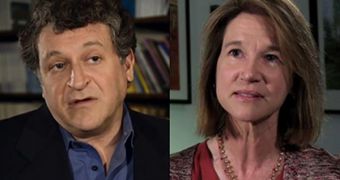One of the traits deeply ingrained in the collective memory of most species on Earth is to always avoid picking fights with stronger opponents. A new study by researchers at the Arizona State University (ASU) has determined that, in humans, religion can make people go up against more powerful groups.
The new findings on the interplays between religion and conflict are published in this month's issue of the esteemed journal Psychological Science. The work was led by psychology professor Steve Neuberg and political scientist Carolyn Warner, both co-directors of the ASU Global Group Relations Project.
The main conclusion of their new paper is that religious beliefs increase the likelihood that weak groups will start or participate in conflict with stronger groups. The main factor that influences this chance is termed religious infusion, and refers to just how much religion has permeated the weaker group.
In order to collect the most relevant data for their project, ASu investigators collected data from five continents and 100 research sites around the globe. Nearly 80 percent of Earth's population lives in the countries the team investigated, so the findings are extremely relevant.
“Under normal circumstances, weak folks don’t try to beat up on stronger folks,” says Neuberg, who was the lead researcher on the project.
“But there’s something about a group being religiously infused that seems to make it feel somewhat invulnerable to the potential costs imposed by stronger groups, and makes it more likely to engage in costly conflict,” he goes on to say.
“Our sites include the most populated countries of the world – China, India, USA, Brazil – as well as a wide range of others,” explains Warner, the co-principal investigator on the project. She says that the research effort surveyed religious, psychological, political and social variables in the target countries.
Results showed that higher amounts of religious infusion in a particular group could be used to predict the likelihood of that group engaging in conflict with others. If two religiously-infused groups came in contact with each other, than prejudice and discrimination values went through the roof.
The study also revealed that when a disadvantaged, religiously-infused group is fighting for power and limited resources with another group, then the former is very likely to initiate conflicts and violence.
“That’s a surprising finding, because the advantages and power held by the other groups should deter the weaker groups. Remember, these weaker groups are likely to get clobbered, at least in the short term,” Neuberg says.
Editor's Note: Whoever said religion promotes rationality?

 14 DAY TRIAL //
14 DAY TRIAL //